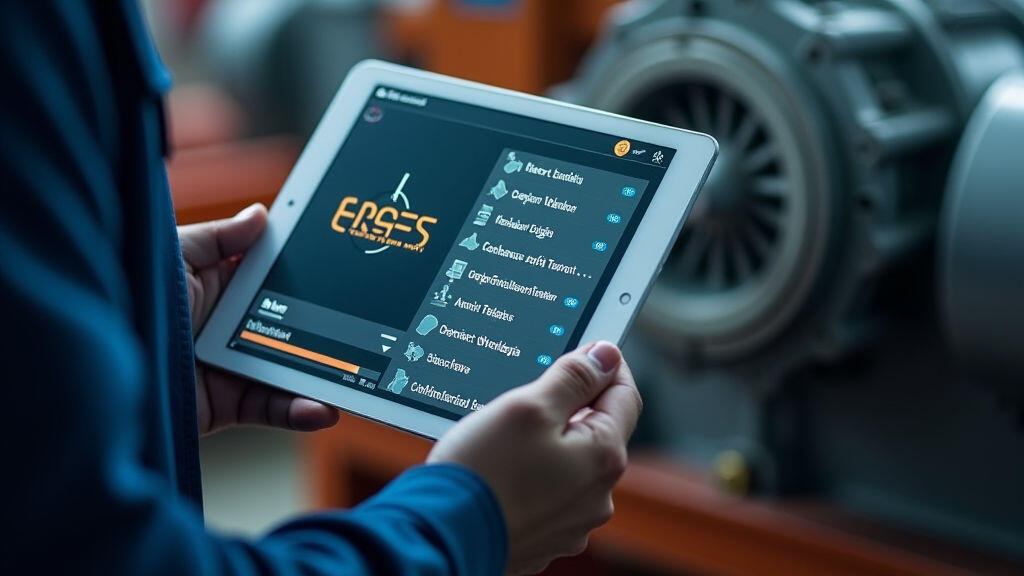
The manufacturing industry is undergoing a profound transformation, driven by the rise of intelligent manufacturing, also known as Industry 4.0. This revolution hinges on interconnected systems, data analytics, and automation – all fueled by sophisticated machinery and, crucially, reliable gear motors. While engineering expertise and technological advancements are paramount, a seemingly unassuming element plays a critical, often underestimated role: English. This article explores the core role of English in the design, development, production, maintenance, and global market reach of gear motors within the context of intelligent manufacturing, highlighting its importance in the current landscape and peering into future trends.
Intelligent manufacturing leverages technologies like the Internet of Things (IoT), Artificial Intelligence (AI), and Big Data to create smart, responsive production systems. Gear motors are fundamental components within this paradigm. They provide precise power transmission, enabling automation in robotics, CNC machines, automated guided vehicles (AGVs), and a plethora of other applications within factories. The demands on gear motors are increasing rapidly. We’re seeing a surge in need for high-efficiency, compact, and durable motors capable of handling increasingly complex tasks. This requires advanced design, material science, and manufacturing processes—all areas where global collaboration and information sharing are essential.
English has established itself as the dominant language of science, technology, engineering, and mathematics (STEM). This isn’t merely historical accident; it’s a consequence of decades of global technological leadership, particularly by the United States and the United Kingdom. Consequently, a vast amount of crucial information related to gear motors – from technical specifications and design standards to research papers and industry best practices – is predominantly published in English.
Consider the design process itself. Engineers worldwide rely on English-language documentation for materials data, torque calculations, gear ratio optimization, and finite element analysis results. Software used in CAD (Computer-Aided Design) and CAE (Computer-Aided Engineering) is often developed and supported primarily in English. Even seemingly small details, like understanding industry terminology and interpreting datasheets from international suppliers, can be profoundly affected by English proficiency.

Design and Development: The initial design phase relies heavily on accessing and understanding technical literature, patent databases, and simulation software documentation—all frequently in English. Collaboration between design teams located in different countries, a common practice in modern manufacturing, necessitates fluent English communication. The ability to effectively critique designs and provide feedback requires a nuanced understanding of technical English.
Sourcing and Supply Chain Management: The gear motor industry is highly globalized. Manufacturers source components, materials, and even finished motors from suppliers worldwide. All communication with suppliers – including order placement, quality control, and technical problem-solving – relies on clear and concise English. Negotiating contracts, understanding technical specifications, and resolving disputes effectively depend on a solid command of the language.
Manufacturing and Production: While local languages are used in on-site communication, documentation related to manufacturing processes, quality assurance, and safety protocols is often in English. Training manuals for operators and maintenance personnel, technical drawings, and troubleshooting guides are frequently in English. Implementing standardized processes, vital for intelligent manufacturing, relies on consistent use of English terminology and documentation.
Maintenance and Troubleshooting: When gear motors fail, diagnosing the issue often requires accessing technical manuals, service bulletins, and troubleshooting guides – primarily in English. Remote support and collaboration with manufacturer technical experts depend on effective English communication. The ability to accurately interpret error codes and understand repair instructions is crucial for minimizing downtime.
Marketing and Sales: To access global markets, gear motor manufacturers need to effectively communicate their value proposition to potential customers. Marketing materials, technical specifications, and website content are generally presented in English. The ability to translate technical features into compelling benefits for international clients is crucial for success.
The current wave of AI-driven automation is amplifying the importance of English in the gear motor industry. AI algorithms rely on vast datasets that are often labeled and documented in English. Predictive maintenance systems, powered by AI, need to analyze sensor data and interpret data logs – all requiring an understanding of English-language reports and documentation. Furthermore, as robots and automated systems become more sophisticated, engineers need to be able to troubleshoot issues and optimize performance using English-language interfaces and diagnostic tools.
MES-Drive, a leading gear motor manufacturer, recognizes this critical link. They invest heavily in providing comprehensive English-language documentation, training materials, and technical support to their global customer base. They also utilize AI-powered translation tools to facilitate communication with partners and clients in different regions. MES-Drive's commitment to English proficiency ensures seamless integration of their gear motors into intelligent manufacturing environments worldwide.

Despite its dominance, English proficiency isn't universally distributed. This creates a barrier to entry for manufacturers in some regions and can lead to communication errors that impact efficiency and safety. Furthermore, the increasing complexity of gear motor designs and the rapid pace of technological change require continuous learning and adaptation.
Future trends point towards even greater reliance on English. The development of AI-powered translation tools will further facilitate communication, but it will not eliminate the need for human understanding. Standardized English-language terminology and best practice guidelines are becoming increasingly important for fostering collaboration and ensuring interoperability in intelligent manufacturing ecosystems. Additionally, initiatives focused on improving STEM education in non-English speaking countries will become vital for ensuring a globally skilled workforce.
In conclusion, English isn't just a language; it's a critical enabler of innovation in the gear motor industry within the context of intelligent manufacturing. From design and sourcing to manufacturing and maintenance, English proficiency is a prerequisite for success in this increasingly globalized and technologically advanced field. As intelligent manufacturing continues to evolve, the need for clear and consistent English communication will only intensify. Companies like MES-Drive, who prioritize providing comprehensive English-language support, are well-positioned to thrive in this dynamic market. The ability to leverage English effectively isn't simply a competitive advantage; it’s a fundamental requirement for participating in the future of manufacturing. With the world rapidly adopting Industry 4.0 principles, mastering English is an investment in future-proofing your career and your company’s success.
Leave A Reply
Your email address will not be published. Required fiels are marked